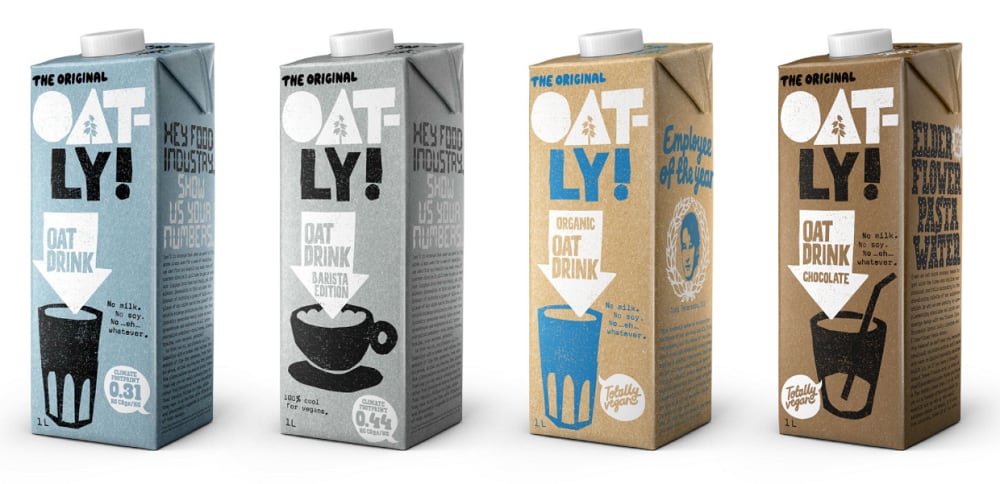Oatly fans and activists have taken to social media this week to denounce the Swedish company, following allegations one of its key investors is linked to deforestation in the Amazon rainforest.
The backlash comes just weeks after Oatly secured $200m (€168m) in new equity from an investment group led by Blackstone, well-known celebrities, and business people including Oprah Winfrey, Jay-Z, Natalie Portman, and former Starbucks CEO Howard Schultz.
The group now owns around 10% of the business, which itself is worth an estimated £2bn. When Oatly announced the investment in July, it said the funds would help expand its oat-based products in existing markets across Europe, the US, and Asia.
Of Blackstone’s investment specifically, Oatly CEO Toni Petersson said: “it is a clear indication of where the world is heading, which is a new, more sustainable direction”.
Blackstone accused of ties with deforestation
However, not all agree with Petersson. Late last week, climate activist Laura Young announced that she would be “moving [her] purchases elsewhere” having learnt of Blackstone’s contribution to Oatly’s funding round.
Blackstone is “an investment company who part own companies who are responsible for Amazon deforestation,” she wrote in a Twitter post.
“Blackstone is a part-owner of 2 Brazilian firms which are directly contributing to the destruction of the Amazon rainforest (Hidrovias do Brazil and Pátria Investimento) and they now hold shares in rapidly growing Oatly.”
The activist said she “doesn’t want [her] money going to the destruction of the planet”, and asked Oatly what Blackstone’s investment means for the brand’s sustainability impact. “I want to keep buying your product, but for now, I’m on pause.”
Blackstone refutes deforestation claims
The Blackstone allegations came to light this time last year, when a company the private equity giant had invested in, Hidrovias, was accused of being responsible for deforestation in the Amazon.
Specifically, Hidrovias was blamed for developing an industrial road through the rainforest. According to Blackstone, however, the claims were ‘erroneous’ and mischaracterisations ‘blatantly wrong and irresponsible’.
“Hidrovias does not own, control or have any interest – direct or indirect – in the road in question (BR-163). This road has been operated by the Brazilian government since 1976. The company did not build this highway, nor are they paving it,” noted the private equity firm.
“At Blackstone, we are deeply proud of our commitments to sustainability. Environmental, sustainability and governance (ESG) issues are central to our investment process, and the operations of our portfolio companies.”
Oatly: We can’t shut out companies that may make less sustainable choices
Replying to Young’s post directly, Oatly said the investment provides Blackwood with an opportunity to steer their capital towards sustainability – so they can make a ‘positive contribution’.
“We understand our owners can have other investments that don’t fit with what we stand for, however they believe [in] us and our mission – and if we just shut out the companies that may make less sustainable choices, we won’t give them the chance to improve and make more sustainable choices, so global capital will keep being steered in a less sustainable direction.”
In conclusion, Oatly said its goal to further the transition to plant-based for the sake of the planet ‘has not changed’.
The plant-based drink disruptor estimates the greenhouse gas emissions of its oat milk to stand at 0.34kg, which is less than both soy and cow’s milk. Water required to produce oat milk (around 48 litres of water per litre of oat milk) is also lower than cow’s milk and other milk alternatives. And concerning land use, oats use 80% less land compared to that required for dairy milk production.
“We’ll keep driving our mission to shift the global diet to become more plant-based for a more sustainable future, and we want to encourage the rest of the business community to start seeing sustainable investments as the way forward,” Oatly continued.


